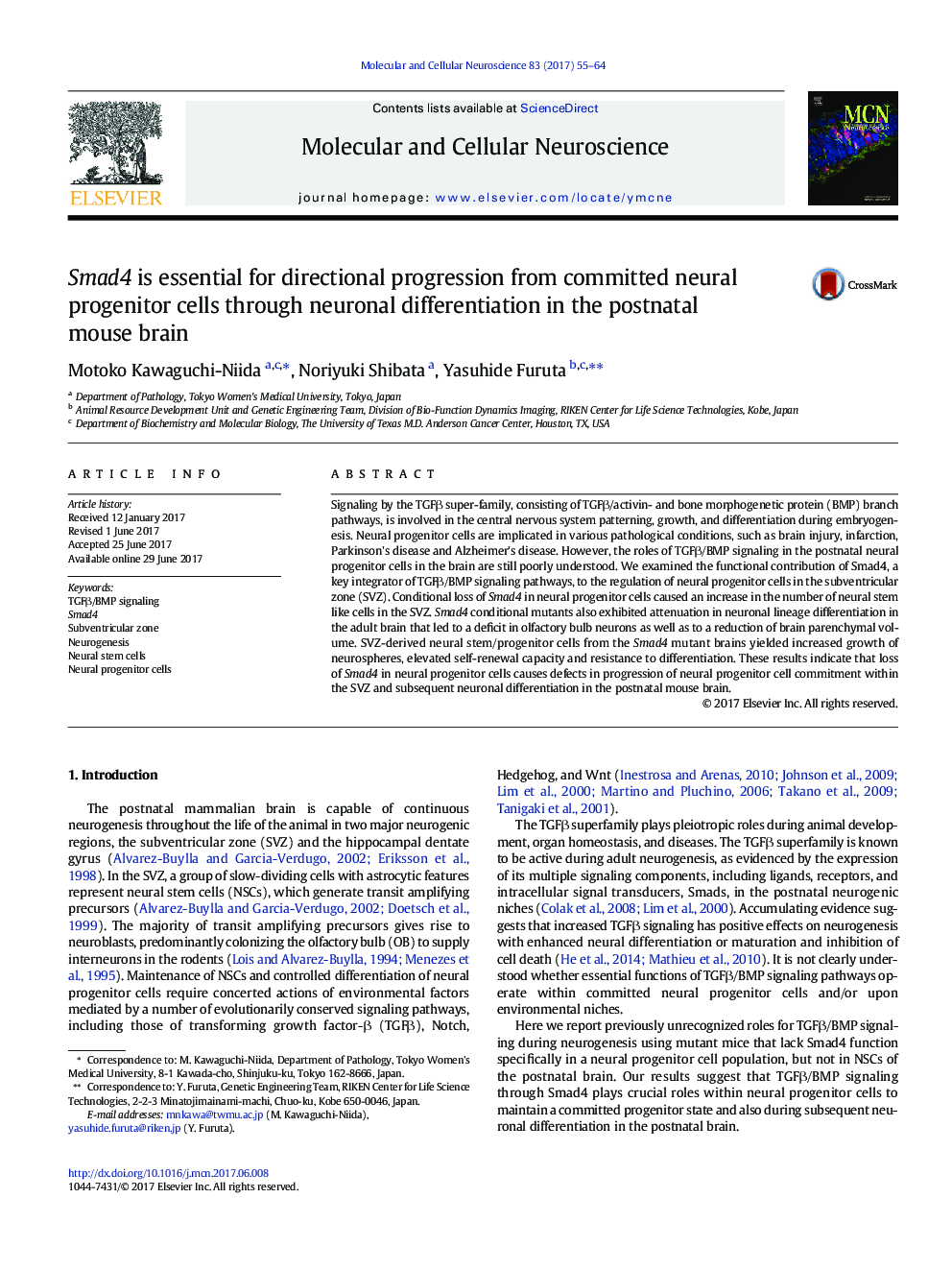| Article ID | Journal | Published Year | Pages | File Type |
|---|---|---|---|---|
| 5534404 | Molecular and Cellular Neuroscience | 2017 | 10 Pages |
â¢Loss of Smad4 in neural progenitor cells impairs adult neurogenesis in the subventricular zone (SVZ).â¢Smad4-deficient SVZ neural progenitor cells appear to retain neural stem cell-like marker profiles in vivo.â¢Smad4-deficient SVZ cells exhibit increased self-renewal activity and defective neural differentiation in vitro.â¢The study suggests a key role for Sma4 in the transition from neural stem- to committed progenitor states.
Signaling by the TGFβ super-family, consisting of TGFβ/activin- and bone morphogenetic protein (BMP) branch pathways, is involved in the central nervous system patterning, growth, and differentiation during embryogenesis. Neural progenitor cells are implicated in various pathological conditions, such as brain injury, infarction, Parkinson's disease and Alzheimer's disease. However, the roles of TGFβ/BMP signaling in the postnatal neural progenitor cells in the brain are still poorly understood. We examined the functional contribution of Smad4, a key integrator of TGFβ/BMP signaling pathways, to the regulation of neural progenitor cells in the subventricular zone (SVZ). Conditional loss of Smad4 in neural progenitor cells caused an increase in the number of neural stem like cells in the SVZ. Smad4 conditional mutants also exhibited attenuation in neuronal lineage differentiation in the adult brain that led to a deficit in olfactory bulb neurons as well as to a reduction of brain parenchymal volume. SVZ-derived neural stem/progenitor cells from the Smad4 mutant brains yielded increased growth of neurospheres, elevated self-renewal capacity and resistance to differentiation. These results indicate that loss of Smad4 in neural progenitor cells causes defects in progression of neural progenitor cell commitment within the SVZ and subsequent neuronal differentiation in the postnatal mouse brain.
